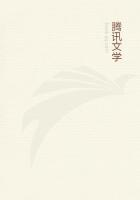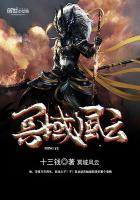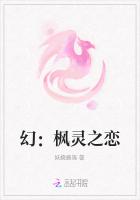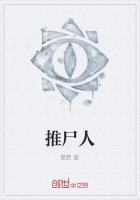[Chang Yu says: "If they are in an awkward place together, they will surely exert their united strength to get out of it."]
24. Soldiers when in desperate straits lose the sense of fear. If there is no place of refuge, they will stand firm. If they are in hostile country, they will show a stubborn front. If there is no help for it, they will fight hard.
25. Thus, without waiting to be marshaled, the soldiers will be constantly on the qui vive; without waiting to be asked, they will do your will;[Literally, "without asking, you will get."]
without restrictions, they will be faithful; without giving orders, they can be trusted.
26. Prohibit the taking of omens, and do away with superstitious doubts. Then, until death itself comes, no calamity need be feared.
[The superstitious, "bound in to saucy doubts and fears,"degenerate into cowards and "die many times before their deaths."Tu Mu quotes Huang Shih-kung: "'Spells and incantations should be strictly forbidden, and no officer allowed to inquire by divination into the fortunes of an army, for fear the soldiers'
minds should be seriously perturbed.' The meaning is," he continues, "that if all doubts and scruples are discarded, your men will never falter in their resolution until they die."]
27. If our soldiers are not overburdened with money, it is not because they have a distaste for riches; if their lives are not unduly long, it is not because they are disinclined to longevity.
[Chang Yu has the best note on this passage: "Wealth and long life are things for which all men have a natural inclination. Hence, if they burn or fling away valuables, and sacrifice their own lives, it is not that they dislike them, but simply that they have no choice." Sun Tzu is slyly insinuating that, as soldiers are but human, it is for the general to see that temptations to shirk fighting and grow rich are not thrown in their way.]
28. On the day they are ordered out to battle, your soldiers may weep,[The word in the Chinese is "snivel." This is taken to indicate more genuine grief than tears alone.]
those sitting up bedewing their garments, and those lying down letting the tears run down their cheeks.
[Not because they are afraid, but because, as Ts`ao Kung says, "all have embraced the firm resolution to do or die." We may remember that the heroes of the Iliad were equally childlike in showing their emotion. Chang Yu alludes to the mournful parting at the I River between Ching K`o and his friends, when the former was sent to attempt the life of the King of Ch`in (afterwards First Emperor) in 227 B.C. The tears of all flowed down like rain as he bade them farewell and uttered the following lines: "The shrill blast is blowing, Chilly the burn; Your champion is going--Not to return." [1] ]
But let them once be brought to bay, and they will display the courage of a Chu or a Kuei.
[Chu was the personal name of Chuan Chu, a native of the Wu State and contemporary with Sun Tzu himself, who was employed by Kung-tzu Kuang, better known as Ho Lu Wang, to assassinate his sovereign Wang Liao with a dagger which he secreted in the belly of a fish served up at a banquet. He succeeded in his attempt, but was immediately hacked to pieced by the king's bodyguard.
This was in 515 B.C. The other hero referred to, Ts`ao Kuei (or Ts`ao Mo), performed the exploit which has made his name famous 166 years earlier, in 681 B.C. Lu had been thrice defeated by Ch`i, and was just about to conclude a treaty surrendering a large slice of territory, when Ts`ao Kuei suddenly seized Huan Kung, the Duke of Ch`i, as he stood on the altar steps and held a dagger against his chest. None of the duke's retainers dared to move a muscle, and Ts`ao Kuei proceeded to demand full restitution, declaring the Lu was being unjustly treated because she was a smaller and a weaker state. Huan Kung, in peril of his life, was obliged to consent, whereupon Ts`ao Kuei flung away his dagger and quietly resumed his place amid the terrified assemblage without having so much as changed color. As was to be expected, the Duke wanted afterwards to repudiate the bargain, but his wise old counselor Kuan Chung pointed out to him the impolicy of breaking his word, and the upshot was that this bold stroke regained for Lu the whole of what she had lost in three pitched battles.]
29. The skillful tactician may be likened to the SHUAI-JAN.
Now the SHUAI-JAN is a snake that is found in the Ch`ang mountains.
["Shuai-jan" means "suddenly" or "rapidly," and the snake in question was doubtless so called owing to the rapidity of its movements. Through this passage, the term in the Chinese has now come to be used in the sense of "military maneuvers."]
Strike at its head, and you will be attacked by its tail; strike at its tail, and you will be attacked by its head; strike at its middle, and you will be attacked by head and tail both.
30. Asked if an army can be made to imitate the SHUAI-JAN,[That is, as Mei Yao-ch`en says, "Is it possible to make the front and rear of an army each swiftly responsive to attack on the other, just as though they were part of a single living body?"]
I should answer, Yes. For the men of Wu and the men of Yueh are enemies;[Cf. VI. ss. 21.]
yet if they are crossing a river in the same boat and are caught by a storm, they will come to each other's assistance just as the left hand helps the right.
[The meaning is: If two enemies will help each other in a time of common peril, how much more should two parts of the same army, bound together as they are by every tie of interest and fellow-feeling. Yet it is notorious that many a campaign has been ruined through lack of cooperation, especially in the case of allied armies.]

